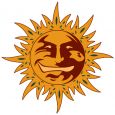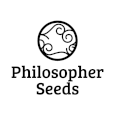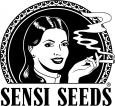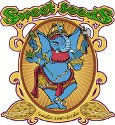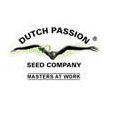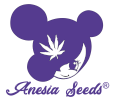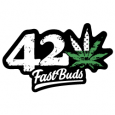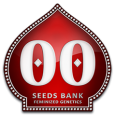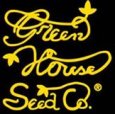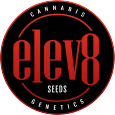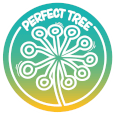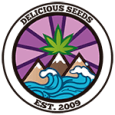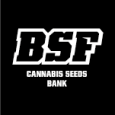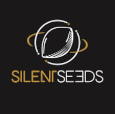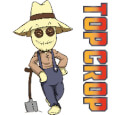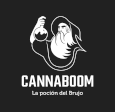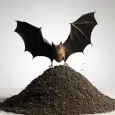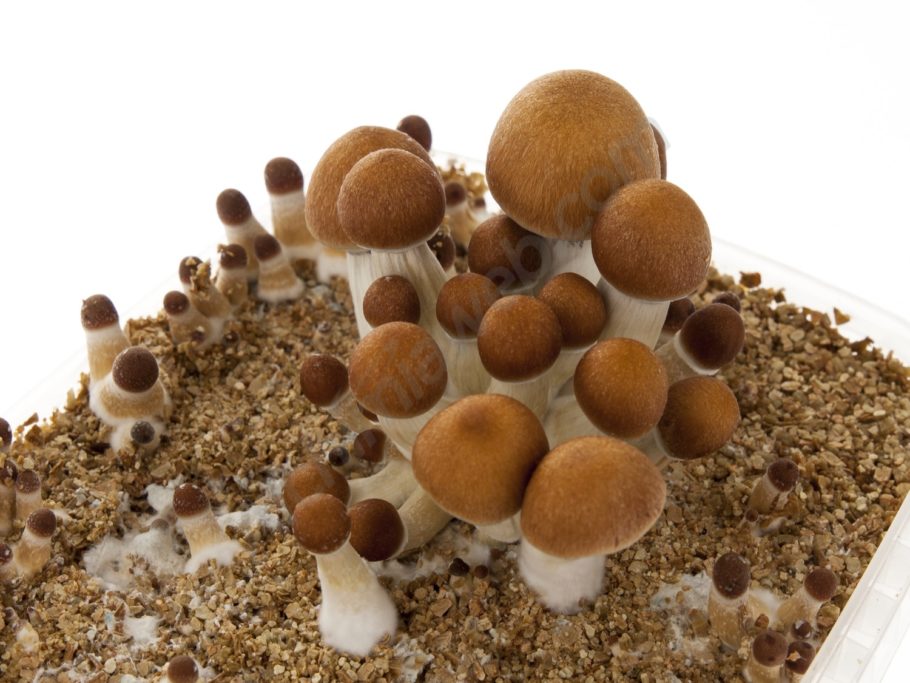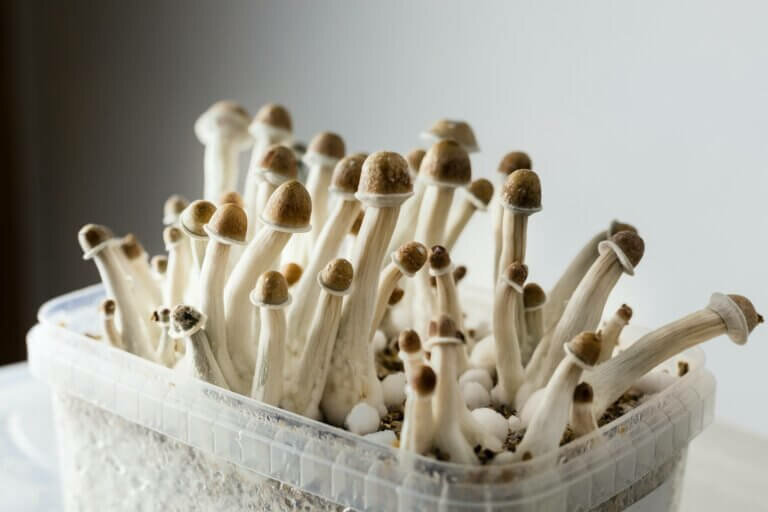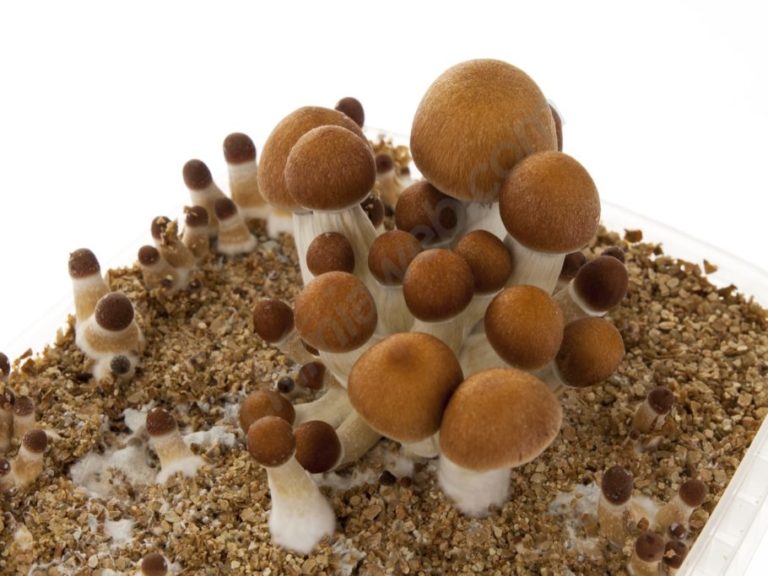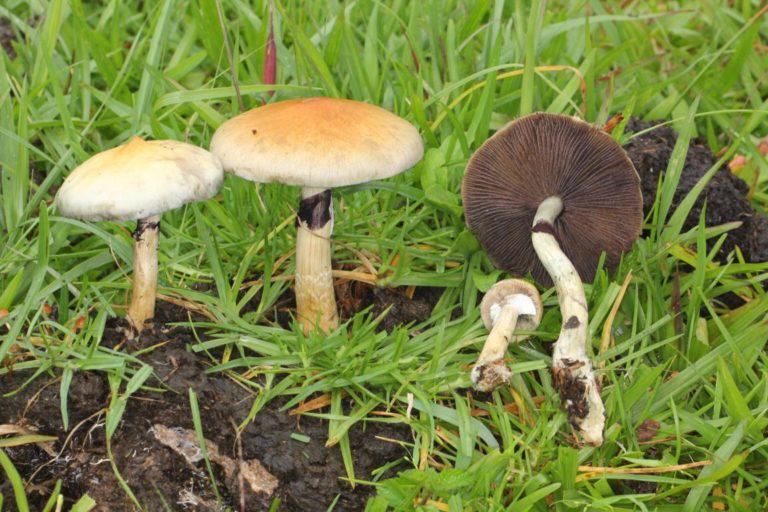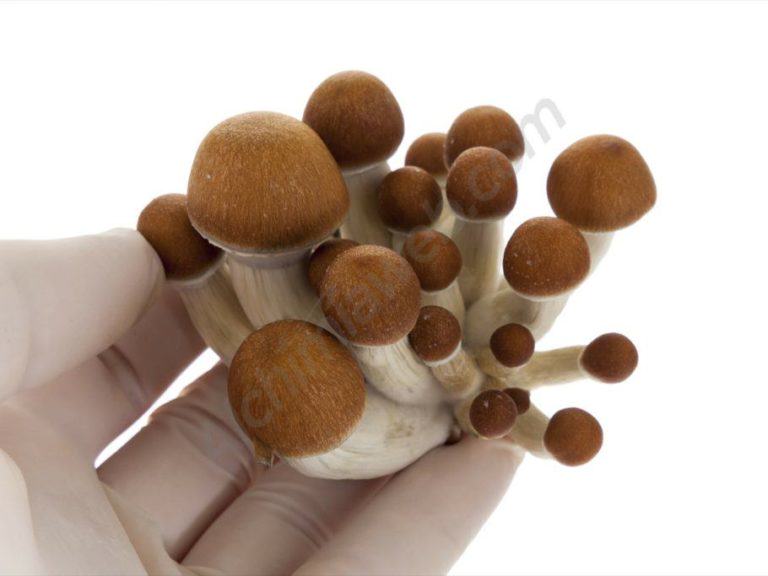Effects of magic mushrooms (medicinal and recreational)
List of contents
- How does psilocybin work in our brain?
- Psilocybin for brain cell growth
- A double-edged sword for mental illness
- Potential Medicinal Uses of Psilocybin
- What effects do magic mushrooms have from a recreational point of view?
- What are the physical side-effects of magic mushrooms?
- What are the risks of hallucinogenic mushrooms?
Since ancient times, humans have enjoyed a mystical relationship with mushrooms containing the hallucinogenic compound psilocybin. Cave paintings in the Sahara desert dating back at least 7,000 years depict mushroom gods and cult rituals, indicating to some historians that hallucinogenic mushrooms were already in use at that time. Spanish missionaries to the New World wrote about the religious uses of psilocybin mushrooms in the 16th century, and recreational use in the Western world appeared in the late 1950s along with the nascent hippie movement.
But in 1971, psilocybin was classified by international agencies as a Schedule I drug and its use was banned, meaning it had no accepted medical use and possession was considered a criminal offence. Therefore, investigation of the compound could not begin until relatively recently.
Today, psilocybin is being widely used in human studies due to its relative safety, moderately long duration of effects, and good absorption after oral administration. And new research, coupled with traditional practices among indigenous peoples, suggests these "magic mushrooms" can serve as therapy for a wide range of ailments.
How does psilocybin work in our brain?
Psilocybin, after being converted into its psychoactive metabolite (psilocin) as it passes through our intestinal mucosa, works by binding to the same receptors in the brain as serotonin, a neurotransmitter that helps control bodily functions such as sleep, sexual desire, and emotional states. psychological factors such as satisfaction, happiness, and optimism.
People with depression or anxiety often have low serotonin levels, as do those with post-traumatic stress disorder, migraine attacks, anorexia, tobacco addiction, and substance abuse. In fact, modern antidepressants like Prozac belong to a category of drugs called selective serotonin reuptake inhibitors, or SSRIs, which prevent serotonin from being reabsorbed so it stays in the body longer. However, it may take weeks for improvement to occur if the medications work.
When psilocybin binds to serotonin receptors on cells, their different physical structure binds in a slightly different configuration, activating them in a different way than serotonin to increase cortical excitability. Cortical excitability is the ability of neurons to fire in the cortex, a part of the brain that governs emotions and thought processes, so this increased activity leads to the rush of thoughts and emotions associated with magic mushrooms.
In fact, a study mapping the human brain by German scientists at Goethe University recently found that psilocybin increases activity in all the most primitive regions of the brain related to emotional thinking. Several different regions in this part of the brain (such as the hippocampus and anterior cingulate cortex) are activated at the same time, similar to the pattern of activity during sleep. But the study also found that subjects taking psilocybin had more uncoordinated activity in parts of the brain involved with higher-level thinking and self-awareness.

"When someone takes psilocybin, we see an overall increase in connectivity between areas of the brain that normally don't communicate well," the study authors explain. "You also see the opposite: Local networks in the brain that normally interact with each other a little bit suddenly communicate less." This leads to a "very, very disorganised brain", which eventually breaks down the normal boundaries between the auditory, visual, executive, and sense-of-self sections of the mind, thereby creating a state of "altered consciousness," he explains. David Nutt, director of the Neuropsychopharmacology Unit of the Division of Brain Sciences at Imperial College London.
And it is this disorganisation that is ultimately therapeutic, according to Nutt: "For example, depressed people are continually self-critical, replaying the same negative, anxious or fearful thoughts over and over again." "Psychedelics interrupt that, so people can suddenly see a way out of their depression during the trip," he added. "Critical thoughts are easier to control and thinking is more flexible. That's why psilocybin is an effective treatment for depression."
Psilocybin for brain cell growth
But there's more. Researchers theorise that psychedelics like psilocybin actually help neurons in the brain produce new dendrites, the membranous parts of a nerve cell or neuron that look like tree branches, to increase communication between cells. Thus, psilocybin can increase neuronal growth, increase the branching of neurons and can increase synapses, producing what is known as neuroplasticity.
Neuroplasticity is different from neurogenesis, which is the development of new brain cells, usually from stem cells in the body. Dendrite growth helps build and then solidify new circuits in the brain, allowing us, for example, to establish more positive pathways. In essence, you shake the brain, see things in a more positive way, and then establish those positive circuits with neuroplasticity.
Interestingly, SSRIs also increase neuroplasticity, a fact that has been known to science for some time. But in a 2022 phase 2 randomised controlled trial comparing psilocybin to escitalopram, a traditional SSRI, researchers at Imperial College London found that the latter didn't work the same magic.
"SSRIs did not increase brain connectivity and, in fact, did not improve well-being as much as psilocybin," says David Nutt. "Now, for the first time, brain science aligns with what patients say after a trip: 'I feel more connected. I can think more freely. I can escape negative thoughts and not get caught up in them.'".
It's ultimately about allowing someone to access a deeper level of their own mental processes, hopefully with greater understanding. And if people really do change the way their brain automatically wires up to respond to triggers of anxiety, depression, or smoking, that's great news for science.
A double-edged sword for mental illness
But not all people are candidates for psychedelic treatment. It won't work in patients currently taking SSRIs: the receptors in their brains are already flooded with serotonin. People diagnosed with bipolar disorder or schizophrenia, or who have a family history of psychosis, are always excluded from clinical trials, says Frederick Barrett, associate director of the Center for Psychedelic and Consciousness Research at Johns Hopkins University. "If you have a vulnerability to psychosis, it could be that exposure to a psychedelic could unmask that psychosis or could lead to a psychotic event," explains Barrett.
Another factor to take into account is people with mental health problems who will never agree to undergo a psychedelic trip. For that group of patients, scientists are trying to find an alternative approach based on microdosing psilocybin, because it solves a key problem of scientific research in this field: it is difficult to hide what they are taking from patients if they start to 'trip'.
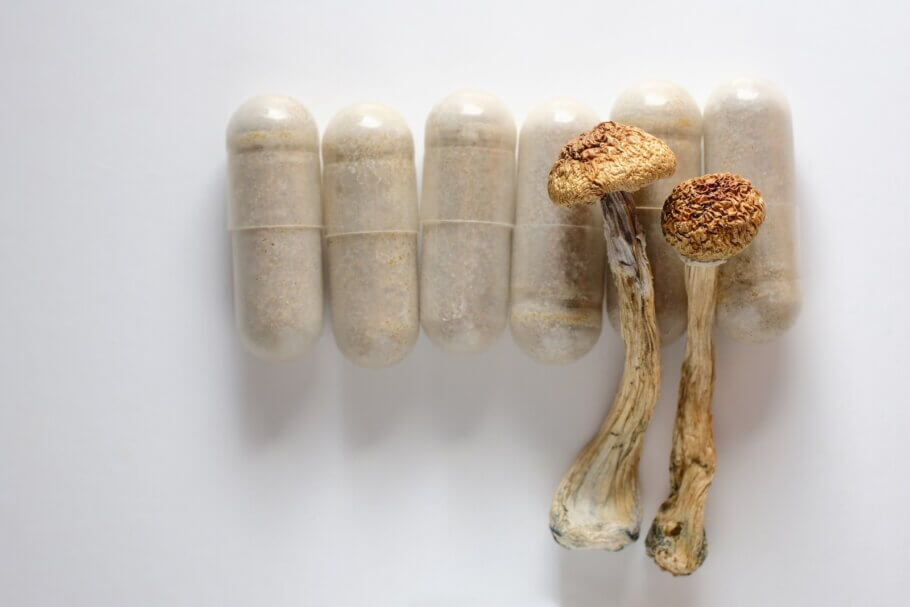
Potential Medicinal Uses of Psilocybin
Psilocybin's unique ability to bind to serotonin receptors, as well as other receptors that are not fully understood by scientists, has led to a wide variety of potential medical uses, the five with the greatest potential being:
Treat severe depression
Millions are currently being poured into psilocybin research for depression and other mental illnesses around the world. There are many reasons why this holds great hope for treatment, especially since psilocybin does not cripple patients with the side effects of antidepressants. It is also much more affordable compared to antidepressant medications, and patients can enjoy significant and long-lasting relief with only small amounts and in much less time. In fact, smaller amounts seem to work even better than larger amounts. A 2016 Johns Hopkins University investigation into the efficacy of psilocybin with patients suffering from anxiety and depression based on a terminal cancer diagnosis described the magnitude of effects seen with psilocybin-assisted therapy as four times more effective than traditional antidepressants.
Reduce anxiety
Much earlier, in 2010, Dr Charles Grob, a psychiatrist at Harbor-UCLA Medical Center, published a study in the Archives of General Psychiatry showing that psilocybin has the potential to reduce anxiety in advanced-stage cancer patients. The study focused on 12 patients who received two sessions each, one with psilocybin and one with a placebo. The researchers found that with a fairly low dose of psilocybin, patients reported feeling less anxiety and needing fewer painkillers.
Post-traumatic stress disorder
Research published in the journal Experimental Brain Research in July 2016 by scientists at the University of Florida suggests that psilocybin can actually restore damaged brain cells. The scientists trained mice to be afraid of an electric shock and then gave them psilocybin. They found that mice taking psilocybin were more relaxed and less fearful, but they also noted that psilocybin restored partially destroyed brain cells. The authors suggest this is promising enough to warrant further investigation into the use of psilocybin to generate new brain cells, as well as the use of psilocybin to treat post-traumatic stress disorder, or PTSD (since the fear in the mice looked like PTSD). ).
Avoid substance abuse
Recent findings also strongly suggest that psilocybin therapy is a promising means of treating alcohol use disorder, a complex disease that has proven notoriously difficult to manage. A new study published in JAMA Psychiatry found that psilocybin was effective in reducing alcohol drinking by 83%. The authors explain that when psilocybin is given along with talk therapy to alcoholic patients, this can be helpful in forging new connections in the brain that are critical for changing old habits and creating new ones, an approach that may prove useful in treating other addictions, such as smoking and cocaine and opioid abuse.
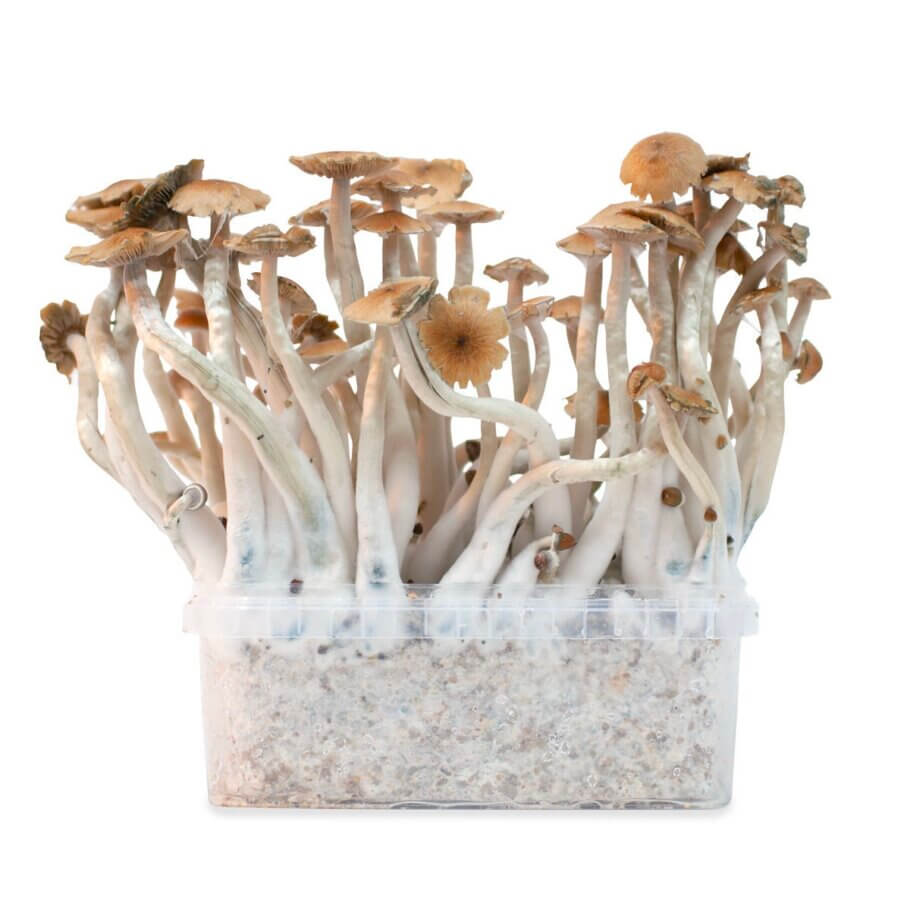
Migraines and chronic headaches
All of this research is promising, but one group of patients has especially high hopes for psilocybin. Cluster headache is a rare condition consisting of severe headaches on one side of the head, often around the eye. The pain has been described as worse than childbirth and the suicide rate among sufferers is 20 times higher than average. Groups of patients are turning to home-grown magic mushrooms to cure their headaches, with many claiming they've tried everything out of desperation, and that psilocybin is the only thing that works. The gauntlet was picked up in June 2022 by the Yale School of Medicine Headache Center of Excellence. They used data from various patient reports and surveys to design and conduct preliminary studies using psilocybin to treat migraines and cluster headaches. "Compared to a placebo, psilocybin reduced the number of migraines by about 15%," the researchers said. “The pain was also reduced. There was also a reduction in functional impairment during the migraine attack."
What effects do magic mushrooms have from a recreational point of view?
As we have seen, psilocybin mushrooms produce changes in consciousness and mood, but also in the perception and sensory experience of the user. These changes are classically known as a psychedelic "trip". Key effects of the experience include thinking in new, interesting, or peculiar ways; having emotions much more connected to sensory experiences; having your gaze directed inward, towards your own emotions or character; experiencing time distortions; experiencing visual and auditory hallucinations; and, in very high doses, experiencing ego death, an intense experience when your sense of self can (apparently) cease to exist, which can be frightening, strange, or enlightening, or all three. A high dose is not recommended, especially for first-time users or those who are not very familiar with the trip, as ego death can be a very intense experience.
Magic mushrooms for beginners
Getting started in the world of magic mushrooms can be very confusing for the uninitiated, who usually don't know the different strains or the correct dose to begin with. In this article, we clarify all your doubts, from the most suitable genetics to the right dose and the importance of the so-called set and setting.
For lower doses, here is a breakdown of the most common mental effects of magic mushrooms:
- Higher energy. Unlimited good vibes.
- Euphoric feelings. An overwhelming sensation of well-being and satisfaction.
- Reality distortion. A new perception of the existing world. A peek behind the curtain.
- Altered perception of space and time. Time and space are distorted. Close distances can feel like miles away.
- Feelings of extreme excitement. Everything is new and wonderful. It's time to explore that curious cupboard under the sink!
- A sense of oneness or oneness with the universe. This type of spiritual experience is a kind of platonic ideal of travel. You feel one with all other living beings.
- Visual and auditory hallucinations. Things become abnormally small or large or bend and wavy. The sounds are distorted and the music becomes unbearably beautiful.
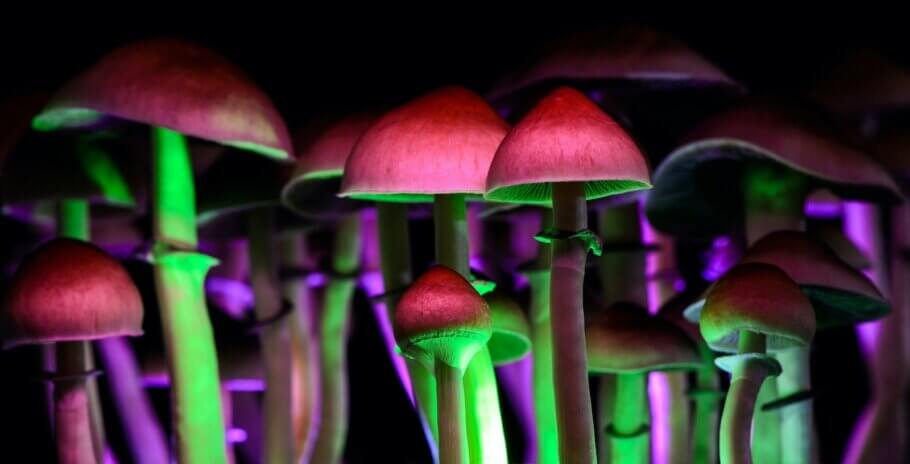
What are the physical side-effects of magic mushrooms?
The hallucinogenic effects of magic mushrooms usually kick in about 30 minutes after eating them. Most trips last between 4 and 6 hours, but it is also possible for the effects to last longer. It tends to depend on how much you take (dosage is critical), the potency of the mushroom, and your general tolerance level. And while under its influence, depending on these factors, it is possible to experience physical side effects such as:
- Headaches.
- Drowsiness.
- Dilated pupils.
- Inability to move.
- Speech difficulties.
- Nausea or vomiting.
- Loss of coordination.
- Increased heart rate or blood pressure. For people with heart disease, these effects could be potentially harmful.
Lived experiences are highly influenced by user expectations, by the context in which mushrooms are eaten, and by the consumer's personality and state of mind.
There is no scientific evidence that users can become physically or psychologically dependent on magic mushrooms. However, it is possible to develop tolerance to its effects with regular use. This may occur over several days of continuous use. In this state, even large amounts of hallucinogenic mushrooms will not produce the desired effect. Developing a tolerance can be especially risky with mushrooms, because consuming a large amount can lead to overdose symptoms that, while not fatal, can include:
- Agitation
- Vomiting
- Diarrhoea
- Muscular weakness
- Seizures
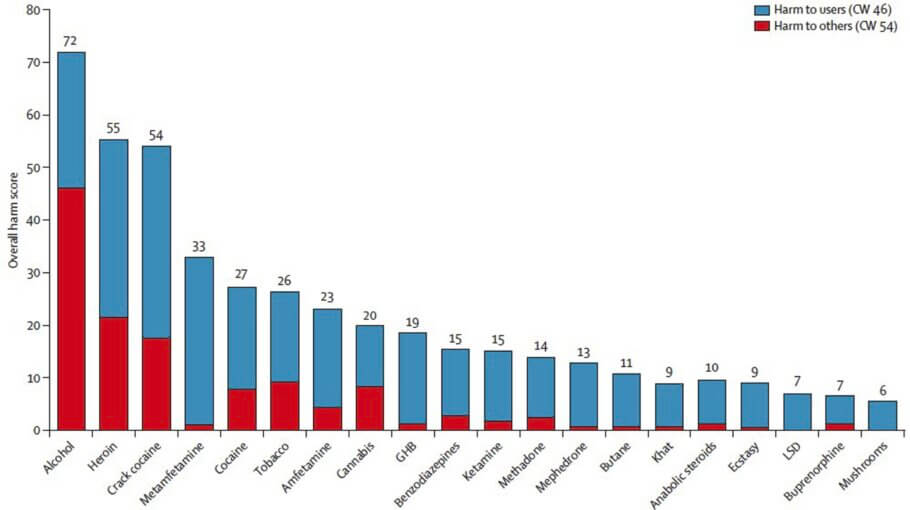
What are the risks of hallucinogenic mushrooms?
But, without a doubt, one of the most common risks of magic mushrooms is what is known as "a bad trip". This can trigger anxiety, stress, frightening hallucinations, or panic. It can encompass various negative experiences, but one can include feeling incredibly uncomfortable with oneself or one's surroundings, not being able to communicate properly with others, and losing touch with reality, which could have dangerous consequences if a person is somewhere that requires their mental faculties to stay safe, for example, in a crowded area or high up.
However, feeling uncomfortable while consuming mushrooms is not always a bad thing. It should be noted that negative trips are not necessarily undesirable. Psychedelics expand the mind and force conversations we might not otherwise have with ourselves, which generally leads to some negative emotions and anxiety.
In fact, new research suggests that around 84% of users who have experienced a "bad trip" with hallucinogenic mushrooms say they benefited from the psychologically difficult situation. These counterintuitive findings were reported in a study published in the Journal of Psychopharmacology.
If you feel unwell while taking magic mushrooms, experts recommend listening to quiet music, getting fresh air, taking deep breaths, lying down with your eyes closed, or meditating. Every trip has its end, so you just have to wait and prevent stress from taking over the experience.
But bad trips aren't the only potential pitfall. Other risks of magic mushrooms include:
- Poisoned food. It is very difficult to differentiate poisonous mushrooms from non-poisonous ones. That's why it's never a good idea to collect your own mushrooms unless you really know what you're doing. For that reason, it's better to grow hallucinogenic mushrooms for yourself.
- Trigger mental and emotional problems. More research is needed, but there is anecdotal evidence that hallucinogens can trigger or exacerbate pre-existing mental health problems.
- Accidents. Because going down a flight of stairs that is quickly turning into an MC Escher painting is harder than it seems.
- Mix Them Up: Combining magic mushrooms with alcohol or other drugs/substances can increase the chances of an adverse reaction.
Lastly, colloquial evidence from users suggests that the psilocybin high can be shortened or 'killed' by consuming sugary foods and drinks such as candy, carbohydrates or fruit juices. The sugars are thought to break down psilocin in the blood, speeding up the process of bringing the user back to sobriety/reality faster. There isn't a lot of scientific evidence to support this theory, but if a user is having a bad trip and/or wants to come down, consuming sugary foods or drinks won't do them any harm.
---
References:
- Enhanced repertoire of brain dynamical states during the psychedelic experience. Enzo Tagliazucchi, Robin Carhart-Harris, Robert Leech, David Nutt, Dante Chialvo.
- Psilocybin for treatment-resistant depression: fMRI-measured brain mechanisms. Robin L Carhart-Harris, Leor Roseman, Mark Bolstridge, Lysia Demetriou, Nienke Pannekoek.
- The abuse potential of medical psilocybin according to the 8 factors of the Controlled Substances Act. Matthew Johnson, Roland Griffith, Peter Hendrick, Jack Henningfieldad.
- Emotions and brain function are altered up to one month after a single high dose of psilocybin. Richard E. Daws, Christopher Timmermann, Bruna Giribaldi, James D. Sexton.
- Pilot study of psilocybin treatment for anxiety in patients with advanced-stage cancer. Charles Grob, Alicia Danforth, Gurpreet Chopra, Marycie Hagerty, Charles McKay.

